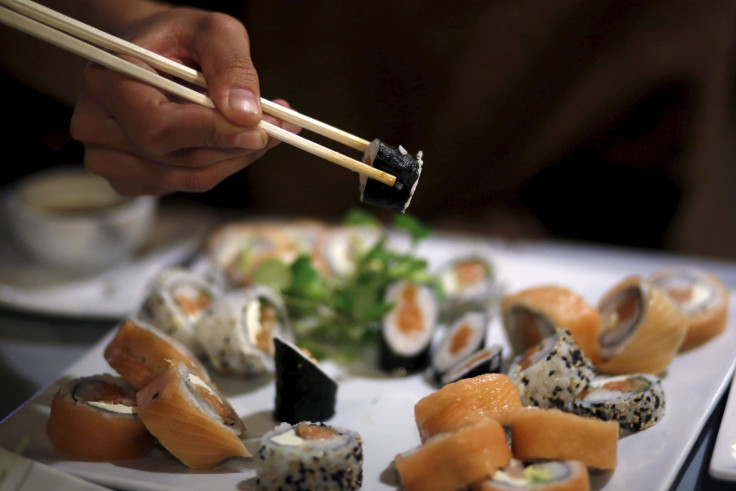Sushi Health Risks: What You Need To Know

Eating raw meat, including raw fish, is fraught with health dangers. Think of food poisoning, parasites, and tapeworms, for example.
This warning against eating raw fish also extends to sushi.
Often regarded as a health food because of its nutrient-rich ingredients, sushi consists of vinegar-flavored rice, raw or cooked fish, and vegetables. This lot is then wrapped in “nori,” a type of seaweed.
No one disputes the fact fish are a great source of protein, iodine, and multiple vitamins and minerals. It’s also one of the few foods that naturally contain vitamin D, which helps maintain healthy bones and teeth and aids in insulin management.
Fish contains omega-3 fats needed by the human brain and body to function optimally. Omega-3 also helps fight medical conditions like heart disease and stroke. Fish is also linked to a lower risk of memory and vision loss in old age.
So, the problem’s not with fish but with raw fish.
Medical investigations have found that sushi made with raw fish might contain harmful bacteria and parasites. Improper food processing and handling increase also increases the risk of contamination.
A recent study examined the raw fish used in 23 Portuguese restaurants. It found that 64 percent of the samples were contaminated with harmful microorganisms.
To reduce the risk of food poisoning, try to eat sushi at reputable restaurants more likely to follow proper food safety practices. Proper food processing and handling procedures might also reduce the risk of contamination, however. But it’s best to avoid eating raw fish.
Pregnant women, young children, older adults, and those with weakened immune systems might need to completely avoid sushi made with raw fish for health concerns.
“Raw fish does not provide any additional health benefits over cooked fish, so it is not worth the risk of contaminants or foodborne illness to consume raw,” said Lauri Wright, PhD, assistant professor in public health at the University of South Florida, and a spokesperson for the Academy of Nutrition and Dietetics.
She said those at high-risk for foodborne illness might suffer severe and life-threatening illness from consuming raw or undercooked fish or shellfish.
“These individuals include those with compromised immune systems or with decreased stomach acidity, as well as pregnant women, infants, young children, and older adults. Raw fish and shellfish consumption is never advised for high-risk individuals. If you're in this category, thoroughly cook fish and shellfish.”
Published by Medicaldaily.com



























